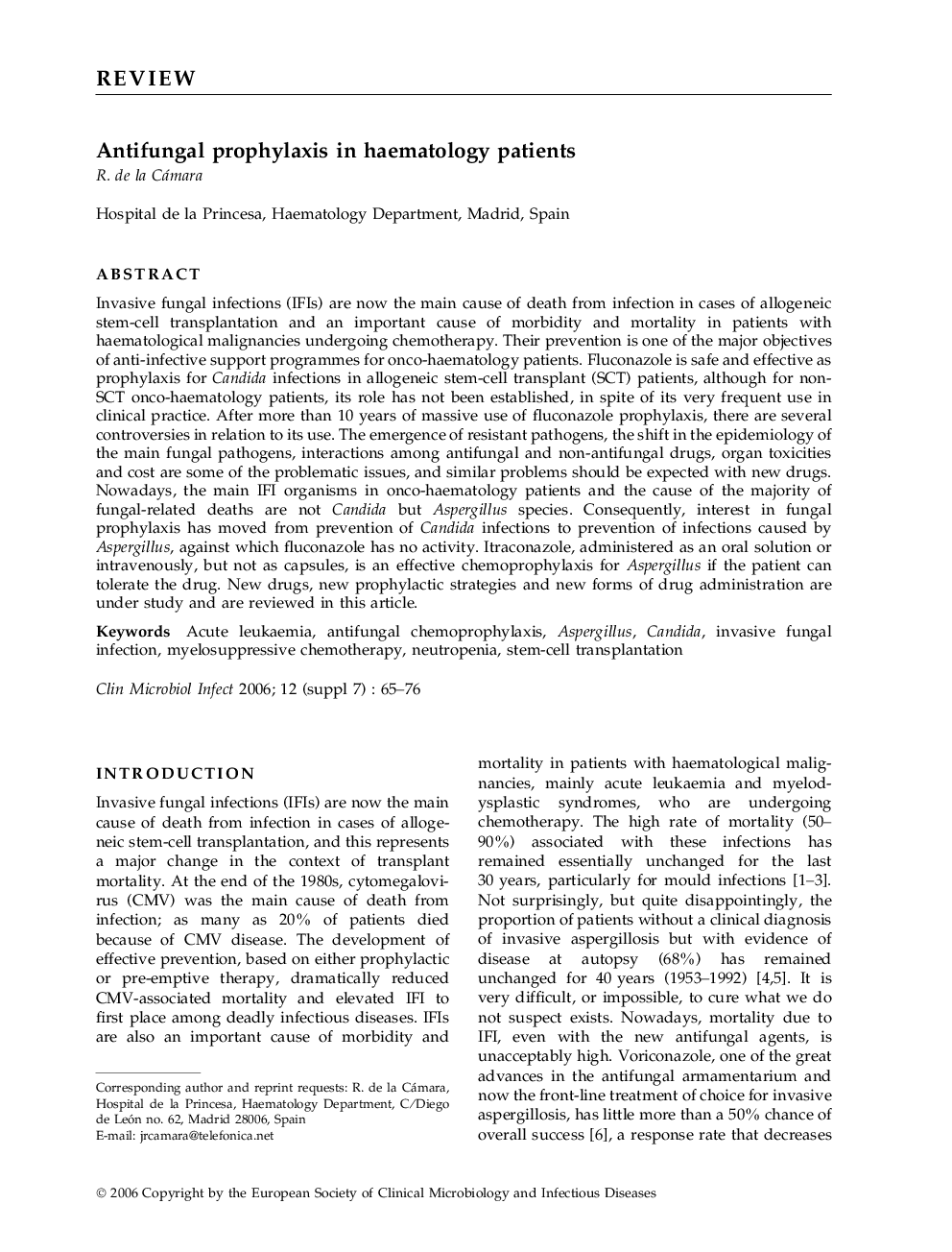| کد مقاله | کد نشریه | سال انتشار | مقاله انگلیسی | نسخه تمام متن |
|---|---|---|---|---|
| 3398471 | 1222288 | 2006 | 12 صفحه PDF | دانلود رایگان |

ABSTRACTInvasive fungal infections (IFIs) are now the main cause of death from infection in cases of allogeneic stem-cell transplantation and an important cause of morbidity and mortality in patients with haematological malignancies undergoing chemotherapy. Their prevention is one of the major objectives of anti-infective support programmes for onco-haematology patients. Fluconazole is safe and effective as prophylaxis for Candida infections in allogeneic stem-cell transplant (SCT) patients, although for non-SCT onco-haematology patients, its role has not been established, in spite of its very frequent use in clinical practice. After more than 10 years of massive use of fluconazole prophylaxis, there are several controversies in relation to its use. The emergence of resistant pathogens, the shift in the epidemiology of the main fungal pathogens, interactions among antifungal and non-antifungal drugs, organ toxicities and cost are some of the problematic issues, and similar problems should be expected with new drugs. Nowadays, the main IFI organisms in onco-haematology patients and the cause of the majority of fungal-related deaths are not Candida but Aspergillus species. Consequently, interest in fungal prophylaxis has moved from prevention of Candida infections to prevention of infections caused by Aspergillus, against which fluconazole has no activity. Itraconazole, administered as an oral solution or intravenously, but not as capsules, is an effective chemoprophylaxis for Aspergillus if the patient can tolerate the drug. New drugs, new prophylactic strategies and new forms of drug administration are under study and are reviewed in this article.
Journal: Clinical Microbiology and Infection - Volume 12, Supplement 7, December 2006, Pages 65–76